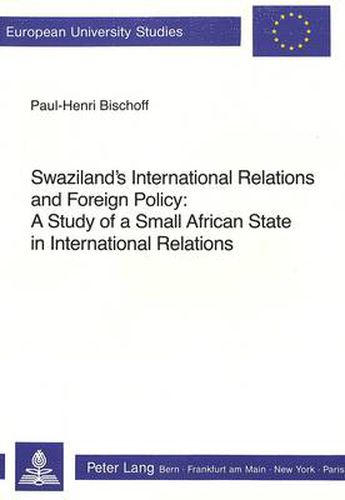Readings Newsletter
Become a Readings Member to make your shopping experience even easier.
Sign in or sign up for free!
You’re not far away from qualifying for FREE standard shipping within Australia
You’ve qualified for FREE standard shipping within Australia
The cart is loading…






This title is printed to order. This book may have been self-published. If so, we cannot guarantee the quality of the content. In the main most books will have gone through the editing process however some may not. We therefore suggest that you be aware of this before ordering this book. If in doubt check either the author or publisher’s details as we are unable to accept any returns unless they are faulty. Please contact us if you have any questions.
In African terms the possession of a single nationality was the unique resource on which the Swazi monarchy could build in order to have constituted a royally dominated nationalism at independence. Accompanied by constraints whose origins are colonial and neo-colonial, Swazi foreign policy has in its own distinctive way, attempted to preserve Swaziland’s independence since. Against the background of the deep conflict within the region, Swaziland’s position in the international relations of Southern Africa has been contested, not least by its decision to sign a security agreement with South Africa in 1982, the first OAU state to do so.
$9.00 standard shipping within Australia
FREE standard shipping within Australia for orders over $100.00
Express & International shipping calculated at checkout
This title is printed to order. This book may have been self-published. If so, we cannot guarantee the quality of the content. In the main most books will have gone through the editing process however some may not. We therefore suggest that you be aware of this before ordering this book. If in doubt check either the author or publisher’s details as we are unable to accept any returns unless they are faulty. Please contact us if you have any questions.
In African terms the possession of a single nationality was the unique resource on which the Swazi monarchy could build in order to have constituted a royally dominated nationalism at independence. Accompanied by constraints whose origins are colonial and neo-colonial, Swazi foreign policy has in its own distinctive way, attempted to preserve Swaziland’s independence since. Against the background of the deep conflict within the region, Swaziland’s position in the international relations of Southern Africa has been contested, not least by its decision to sign a security agreement with South Africa in 1982, the first OAU state to do so.